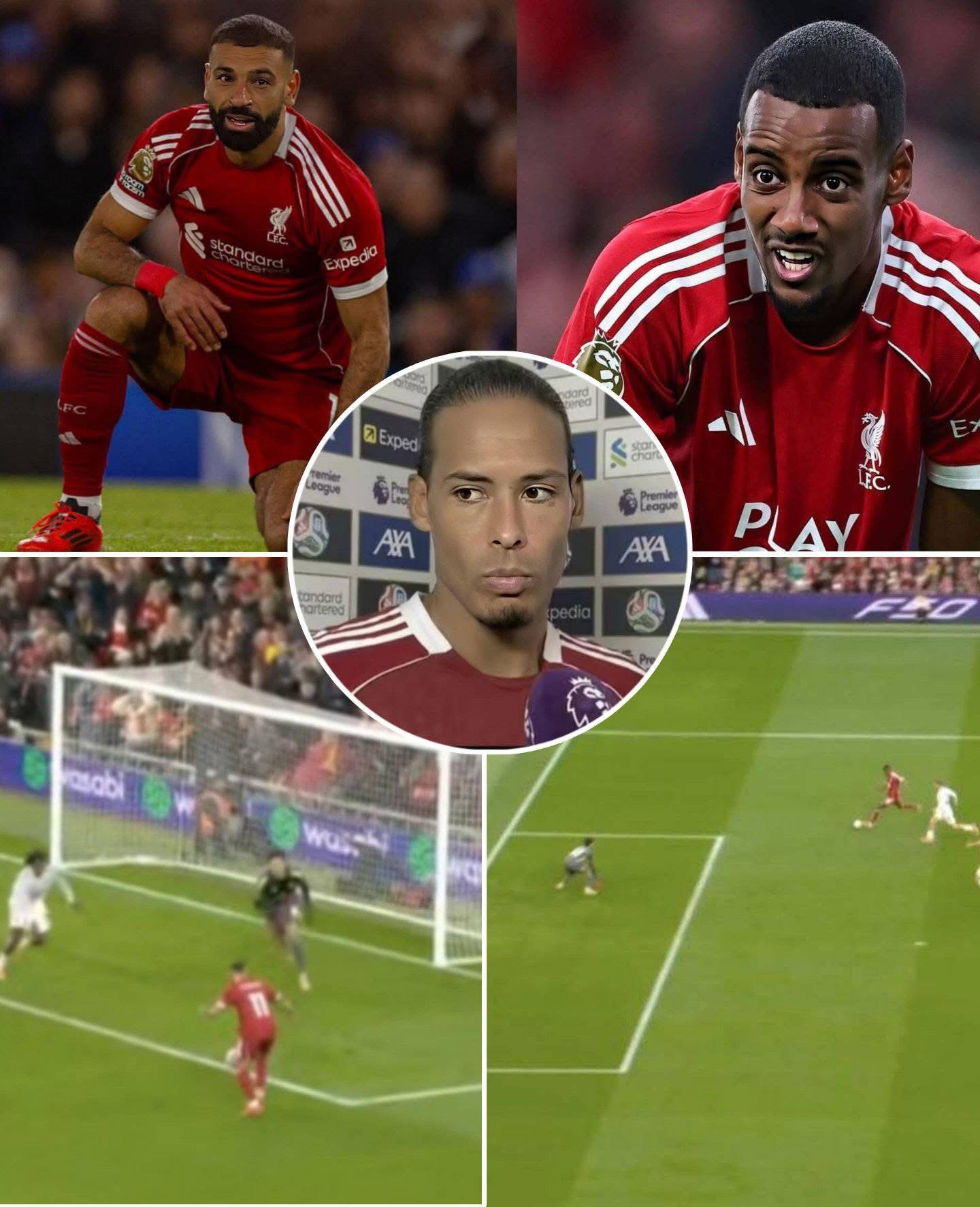Controversy at the Etihad: Van Dijk’s Disallowed Goal Sparks Liverpool Outrage
Liverpool suffered a 3-0 defeat to Manchester City at the Etihad Stadium on Sunday, but much of the post-match conversation has centered around Virgil van Dijk’s disallowed first-half goal. The Dutch defender appeared to equalize for the Reds in the 38th minute with a perfectly timed header, only for referee Chris Kavanagh to rule it out for offside. The decision came after VAR determined that Andy Robertson had obstructed goalkeeper Gianluigi Donnarumma’s line of vision, sparking immediate controversy and widespread debate.
Had Van Dijk’s goal been allowed, the match might have gone into halftime at 1-1, providing Liverpool with a much-needed boost. Instead, Manchester City maintained their dominance throughout, rarely allowing the visitors a meaningful attacking opportunity. From the moment the header struck the back of the net, Liverpool players and manager Jürgen Klopp’s staff were visibly frustrated, highlighting a growing concern about consistency in VAR rulings and officiating decisions this season.
The Premier League’s video assistant referees and the PGMOL released the full VAR audio from the incident, providing insight into the deliberations that led to the disallowed goal. Assistant VAR Michael Oliver and his team reviewed the play multiple times, focusing on Robertson’s positioning in the six-yard box. According to the audio, the AVAR repeatedly mentioned that Robertson was “in line of vision” and “very close to the keeper,” noting that he ducked under the ball in a manner that could influence Donnarumma’s ability to make the save. Ultimately, Kavanagh was advised to uphold the offside call, citing the perceived impact on the goalkeeper.
Liverpool, unsurprisingly, lodged a formal complaint with the PGMOL following the match, expressing “serious concerns” over the decision. The club reportedly engaged in discussions with Howard Webb, the PGMOL’s technical director, seeking clarification on why the goal was not awarded. Webb, however, maintained that the decision fell within the range of reasonable judgment, emphasizing that offside rulings involving players who do not touch the ball but interfere with an opponent are inherently subjective. He explained that Robertson’s movement, though minor, could have influenced Donnarumma’s ability to save the header.
In an official statement, Webb elaborated that the positioning of the Liverpool full-back in the six-yard box was crucial to the offside determination. As the ball approached Van Dijk, City players had moved out, leaving Robertson in an offside position. Webb highlighted that Robertson’s decision to duck directly in front of the goalkeeper constituted a “clear action” affecting Donnarumma’s capacity to react. While Webb acknowledged that opinions differ on such calls, he insisted that the VAR team’s review concluded the on-field ruling was “not clearly and obviously wrong.”
Despite the controversy, Manchester City emerged victorious thanks to goals from Erling Haaland, Nico Gonzalez, and Jeremy Doku. The result left Liverpool in eighth place after 11 games, a disappointing start to their Premier League title defense. Manager Arne Slot expressed frustration after the match, noting that Van Dijk’s goal could have been pivotal in shifting momentum. Fans and pundits alike continue to debate whether the decision was correct, underscoring the ongoing challenges of balancing technology with human judgment in football officiating.
Ultimately, the Van Dijk incident has reignited the broader discussion about VAR’s role in the Premier League. While PGMOL officials insist the ruling was within the rules, Liverpool supporters argue that the decision deprived the team of a fair chance to compete. As the season progresses, every such contentious call is likely to be scrutinized even more closely, raising questions about consistency, interpretation, and the fine line between subjective judgment and objective fairness in modern football.






